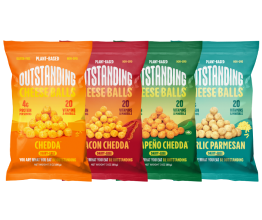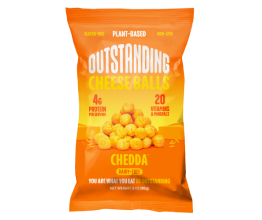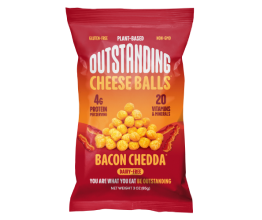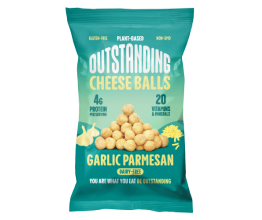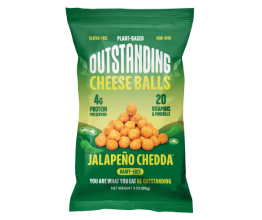Why You Should Choose a Plant-Based Diet
We’ve watched a lot of diet trends come and go over the past few years, from low-carb crazes like Keto to the prehistoric eating patterns of Paleo. People try to lose weight by eating only soup, getting rid of gluten, or enduring long bouts of fasting with only electrolyte water to sustain them.
The plant-based diet is a much more natural way of eating that can help you attain health and fitness goals without headaches or confusion. The dietary concept is exactly as it sounds: eat whole foods from plants and keep the animal products off the table.
It isn’t just a theory. Going plant-based has a ton of tangible health benefits that make you feel great and improve cognitive and physical performance. We’ve seen doctors, scientists, and even athletes state their commitment to the plant-based lifestyle, with millions of everyday people following suit.
But before you clear out your fridge and start from square one on a vegan diet, there are some things you should know about going all-in on plant-based eating. Like any wellness or lifestyle change, you don’t want to jump in unprepared.
This article will define what the diet involves, break down the science behind it, list out some benefits, and offer a few real-life tips that will help you stay healthy and happy on your plant-based journey. We’ll even give you a few tasty snack recommendations that will no doubt come in handy down the road. Let’s get into it!
What Is the Plant-Based Diet?
Everyone has their own idea of what it means to eat a plant-based diet. Some people have a strict interpretation: absolutely no animal products at all (this is generally considered veganism). Others believe that eggs, yogurt, and dairy products are permissible but that meat should be avoided.
Many plant-based eaters choose to focus on fruits, veggies, and whole grains (nuts and seeds included) but allow themselves to eat meat or other animal foods on rare occasions rather than sticking strictly to a vegetarian diet. This is often referred to as a flexitarian diet.
How you live the lifestyle is ultimately up to you, and as long as you put plant-based foods front and center, you’re on the right track.
The point is not to be part of a movement but to eat plant-based foods for your own reasons. Don’t worry about the microscopic details of your diet when first getting started. Simply learn to love preparing and eating whole, plant-based foods and see for yourself what happens.
Plant-Based Diet Science Facts
Nutrition science has a lot to say about the plant-based diet, and research has ramped up in recent years to explore how the body responds to this style of eating.
At its core, the plant-based diet is a reaction to the less-than-healthy Standard American Diet, the starchy, fatty foods that dominate the food culture in the western world and leave us in a health deficit as a society.
As you might have guessed, those greasy burgers, salty french fries, and 32oz sodas are not very good for the body. Even some of the foods marketed to us as “healthy” or low-fat contain hidden sodium and sugar that causes inflammation at the cellular level and causes us to store fat in all the wrong places. Some scientists even suggest that these foods are toxic to the body.
The problem is a diet that causes chronic inflammation and damages cells so that they can’t function in full. That’s where we start to see issues with immunity, digestion, absorption, weight gain, and bigger problems like the risk of heart disease, cardiovascular disease, and cancer.
The plant-based diet aims to undo the damage done by our unhealthy eating habits, flooding the body with healthy vitamins, minerals, phytochemicals, and antioxidants. It dramatically reduces processed carbs and oils that are so common in fast food and sweets, limiting saturated animal fat as well.
That’s why the plant-based diet is credited with preventing type 2 diabetes, maintaining a healthy heart, improving cholesterol, assisting with weight loss, and reducing the chance of stroke.
Remember that it’s called plant-based for a reason – the foods you eat should be as unprocessed and natural as possible. The closer to actual plants you can get, the better. It’s not just about avoiding certain foods like red meat and dairy, but actively consuming real, plant-based ingredients that are free from all those suspicious additives and chemicals.
Benefits for the Body
All that talk about inflammation, free radicals, and antioxidants might sound good, but what are some of the practical benefits you can expect from embracing the plant-based lifestyle? If you want to look better, feel better, and perform at a higher level, plant-based eating can help.
The first thing we hear when someone switches to a plant-based meal plan is how light and mobile they feel. That heaviness you get after a big fast food meal? That’s your system going into overdrive to process and digest all those unnatural chemicals and compounds.
When you go plant-based, your body is way happier to absorb things like fruits, veggies, and healthy oils from olives or coconuts, plus plant proteins like black beans, cashews, and tempeh. You don’t feel as weighed down after a meal, and that sensation carries into your daily activities - the gym, the running trail, the beach, wherever.
Athletes like NBA star JaVale McGee have been outspoken about the plant-based diet for that exact reason. His play style is fast and high-flying, despite being one of the taller guys on the court. His strict plant-based diet helps him stay lean and agile among the best in the world.
“I’m a vegan because of that, I like to stay skinny,” says McGee. “I like to sprint, I like to run up and down the floor. That’s what I model my game after just being able to get up and down the floor and catch lobs and stay light.”
Benefits for the Brain
On top of physical performance, you also get a mental edge when you switch over to the plant-based diet. Studies show that plant foods rich in vitamins and minerals are key to maintaining brain health and keep your mind razor-sharp.
That goes for the short term and down the road. Plant eaters are at a far lower risk of developing cognitive dysfunction into advanced age, combatting chronic diseases like dementia and Alzheimer’s disease more effectively.
Say goodbye to stuff like brain-fog and that post-lunch crash once you go plant-based. That’s how you level up in every area of your life, including your health.
JaVale McGee outsmarts opponents on the court, makes big business moves, runs a popular vlog, and even produces award-winning hip-hop beats as Pierre. He credits his high energy lifestyle with this simple diet adjustment that changed his game.
"You definitely notice it immediately,” McGee stated. “You just feel really good, lighter. And there is a lot more energy you have throughout the day. For me, it’s been good from that aspect."
Plant-based living might just give you that edge you’ve been looking for. How are you going to use it?
Getting Started with Plant-Based Living
So you want to jump on the plant-based bandwagon but aren’t sure where to start? The first thing you want to do is run a full audit of your current diet and be honest about the changes you need to make.
Rather than getting rid of everything remotely related to animal products, start simple by tossing those super-processed snacks and sweets that you know aren’t good for you. A big part of plant-based living is resetting the body to its natural state, and that means defeating cravings for stuff with supernatural levels of salt and sugar.
At the same time, start testing out different healthy ways to snack and make meals with plant-based foods. For snacks, try chopping up raw bell peppers, carrots, and cukes, then dipping them in hummus or guacamole. Fresh fruit like apples and peanut butter is another great combo.
For meals, focus on keeping things simple and use all the natural herbs and spices you want. Season those veggies, be generous with the olive oil, and go big on flavor. Healthy grains like couscous, brown rice, and quinoa are a lifesaver. Legumes like chickpeas, cannellini beans, and lentils will keep you full, too. Learn some easy stews and soups to get enough protein and fiber—you can still hit the important food groups.
Remember, it’s not about depriving yourself of tasty food. It’s a positive shift in a new direction. Eventually, you can start cutting down on meat and go all-in on plants if that’s your aim.
If snack cravings kick in at some point, don’t sweat it. Check out healthy plant-based snacks like Pig Out Pigless Pork Rinds or Outstanding Puffs to get a huge blast of flavor, crunch, and nutrition. Over 20 grams of protein per bag with low salt and fat? That’s a no-brainer.
The Outstanding Foods mission is to make plant-based eating fun and easy. Find out more here.
Conclusion
Now that you know the power of the plant-based diet, take that first step towards better health and longevity today! We’ve got your back.
Sources:
5 benefits of a plant-based diet | MD Anderson Cancer Center
What is a plant-based diet and why should you try it? | Harvard Health Blog
9 Scientific Benefits of Following a Plant-Based Diet | Everyday Health
